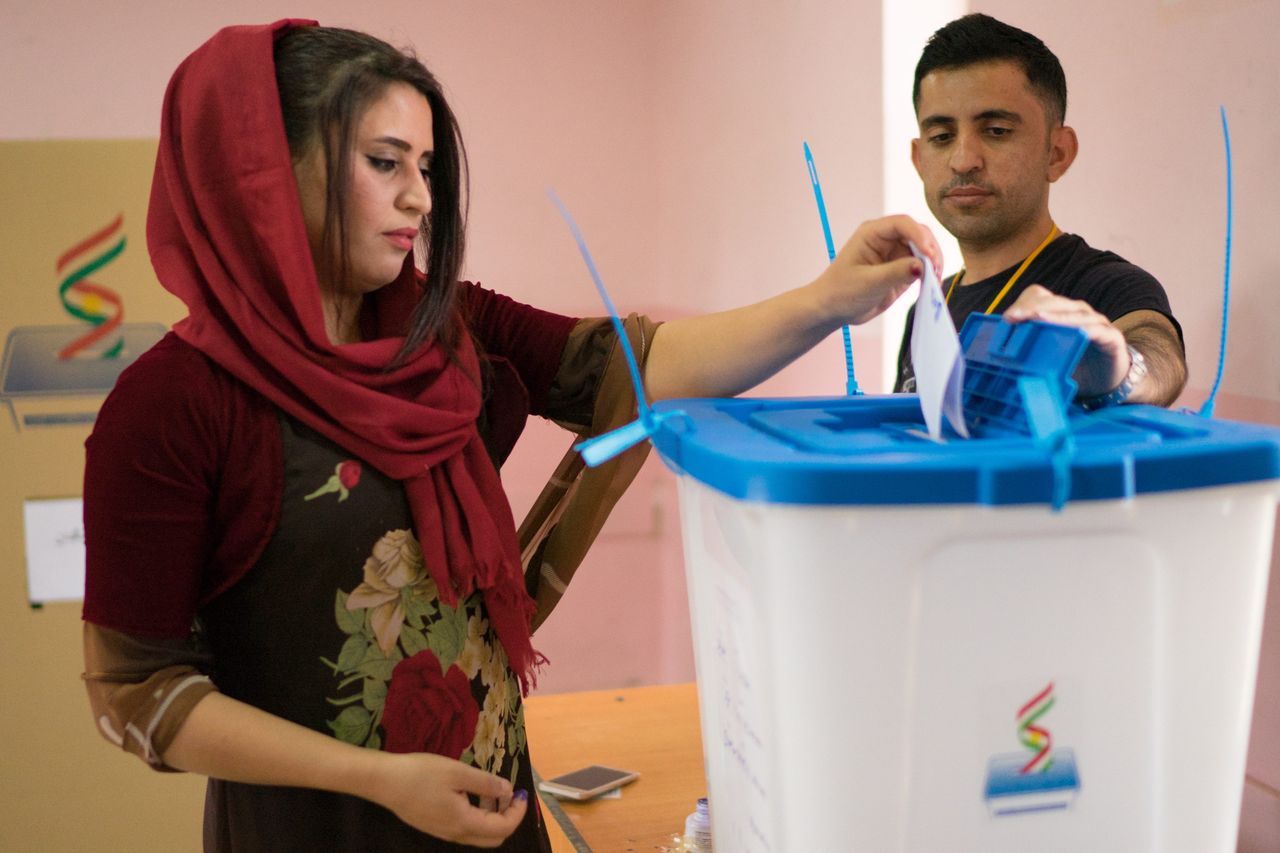
This is the first parliamentary election after ISIS was defeated in Iraq.
According to the preliminary results, the Victory Alliance headed by the Iraqi Prime Minister, Haydar al-Abadi did not win the election and will finish third. The winners will be the Sadrist-Communist alliance, a coalition of a controversial Shiite cleric Muqtada al-Sadr and the communists. His supporters took to the streets of Baghdad where the cleric’s party won even before the results were announced. The Fattah Alliance, composed largely of the former members of Shia militias, finished second.
Tired of crises and corruption
Almost 7,000 candidates from 87 parties were running for 329 seats in the Iraqi parliament. Among them were around 2600 women who, thanks to the 25% quota system, are guaranteed to get at least 83 seats. The polling stations opened at 7 a.m. local time and were closed after eleven hours.
Only 45% (more than 10 million) Iraqis went to the polls. It is the lowest turnout since 2005. No election since 2003 has attracted more than 60% of the eligible voters. It goes to show how tired Iraqis are of economic failures, prevailing corruption and crises. It was this lack of changes that caused Abadi to lose the election. On the other hand, what catapulted the alliance of Shia and communists to the first place was the skillful use of anti-corruption sentiment.
It seems that no party will secure the 165 seats which allow to form a majority government.
Fighters in suits
The biggest controversy was raised by the Fattah Alliance. Its leader, Hadi al-Amiri, was previously the commander of one of the Shiite militias which, in turn, were a part of al-Hashd al-Shaab (Popular Mobilization Units). About 500 former fighters changed their military uniforms to suits and started the battle for parliament. Now Amiri is the head of the Fattah Alliance.
Another important figure is Qais al-Khazali, who is also the head of the most influential faction – Asa’ib Ahl al-Haq. The group was responsible for the kidnapping of a British computer scientist Peter Moore and his four bodyguards. Moore was released only after two years. He was exchanged for a brother of Hazali Laith, an important member of the Lebanese Hezbollah, who was imprisoned in an American-controlled prison. Moore’s bodyguards, in turn, were murdered. Khazali admits that a lot of mistakes were made in the past and they now need to be fixed. “It was said that the Sunni are terrorists and that we are kidnappers. It needs to stop. We now need to build a country for everyone”, he was quoted by The Guardian.
Security measures
More than 2 million internally displaced people, mainly Sunni Muslims, fled their homes because of the ongoing fighting or threat. The electoral committees were also located in camps, where these people currently reside. However, only 285,000 have been registered.
For the first time the votes are counted electronically which is to prevent electoral fraud. Nevertheless, political parties in some regions still demand that the votes are counted manually as the results raised controversy. Because of that, a shootout between two Kurdish parties happened in the Kurdish city of Sulaymaniyah. However, no victims were reported.
ISIS threatened with attacks during elections. Its spokesman, Abu al-Hasan al-Mujahir, called for them in a video published on April 22nd. It was one of the reasons why security measures were tightened. On the day of the vote travelling by cars was banned. This particular decision was met with Iraqis’ criticism, who had to travel long distances to get to the polling stations (which also affected the turnout). Intercity roads, borders, and the airport were closed. Despite these measures, six uniformed officers were killed.
The previous parliamentary elections were held on April 30, 2014.
The photo presents a woman taking part in the independence referendum which was held on September 25 in northern Iraq.























